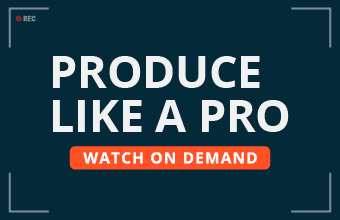Twitter Blue was introduced in 2021 and was originally pitched as a subscription option for users to get early access to exclusive features like editing Tweets and receiving dedicated customer support. Once Musk took over in 2022, verification was added to the package. For several months, Twitter leaned into a “Legacy Verification policy” that allowed accounts that had been verified through the old process to keep their badge.
In April 2023, Twitter stripped these accounts of their blue tick marks, requiring them to subscribe to Twitter Blue or to “Verified Organizations,” an additional subscription model for companies to have full control over their verification status.
In addition to revoking legacy verification, Twitter announced that verification was now a requirement for accounts to run ads on Twitter. At the same time, many accounts began mysteriously receiving their blue check marks back even though they were not paying for either subscription type.
Emplifi sought to conduct a social media analysis to learn more about brand verification adoption in addition to understanding differences in engagement between verified and non-verified accounts.
The time range selected (March 01 – May 15th, 2023) takes into account the time before Elon Musk’s announcement about the deprioritization of non-verified accounts and after to better understand brand behavior and reaction to Musk’s announcement.

Interestingly, of the nearly 100,000 brand accounts we monitor, 4 percent were verified a week after Musk’s announcement. There was a minimum change in verification the following week with a 3.2 percent increase. By mid-May verified accounts doubled compared to the number of verified accounts in early April.

Many brands and pages have been questioning whether or not it’s worth it to pay for verification on Twitter
Emplifi data shows that there is indeed a drastic difference in engagement between varied and non-verified accounts. For the time range, on average verified accounts receive 3x more interactions than non-verified accounts for a given time range.
If brands are looking to get the most out of Twitter, Emplifi data confirms that it’s worth the cost
Earlier this year Twitter made its algorithm open source, which gave marketers the ability to see exactly what type of engagement would earn them high rankings in the Twitter Feed. Interestingly, for every Like, the algorithm will give the Tweet a 30x boost. Retweets come in second with a 20x boost and replies come in last with a 1x boost. Brands that have verified accounts will have the upper hand when it comes to having their content served to a wider audience and amplified even further once it’s engaged with.
Twitter plays a critical role in how consumers interact with brands and vice versa
It plays a major role in how companies drive awareness for new products, conduct research, engage with communities. Brands who don’t opt for Twitter verification risk not only confusing their audiences but also leave potential reach and engagement on the table. Emplifi data shows an increase in brands adding blue checks to their names. So, if Twitter is an important part of a brand’s strategy it’s a no-brainer to invest, or risk becoming obsolete on the platform.




